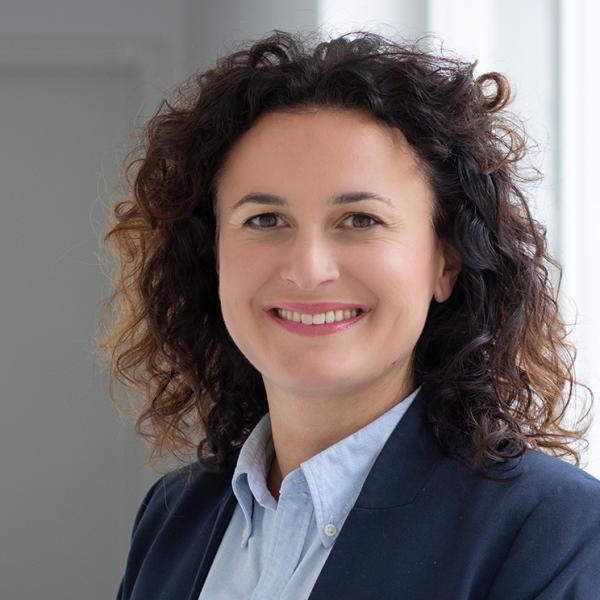ifo Media Center
The ifo Institute invites you to participate in the discussion of interesting economic topics via the Internet. In our ifo Media Center a whole series of remarkable events are available and can be viewed in full length. We also record selected speeches and presentations given by employees or at events and make them available in our Media Center.

Property Tax
In mid-June 2019, the coalition partners agreed on a compromise for the reform of property tax. Although it provides for uniform calculation of the tax nationwide based on the value of land and the average rent, it gives the Laender scope for individual options by means of a so-called flexibility clause. The new rules necessitate the amendment of the Basic Law: The federal government is to be given legislative power over property tax. The Bundesrat and Bundestag approved the amendment.
Income Tax
Germany needs a taxation system that satisfies the needs of both its citizens and its companies. In times of economic change, tax reforms remain on the agenda.
Public Finances
The debate on the composition of public finances in terms of revenue and expenditure is at the heart of the design of economic policy. Sound public finances are crucial not only for current development, but especially for the burden on future generations. How must public finances be structured so that the state can continue to fulfil its tasks in the future?
Digital Infrastructure
Successful creation of powerful digital infrastructure is critical to the future viability and competitiveness of the European Economic Area. The internet – in close connection with other forms of information technology – has by now become firmly established in today’s manufacturing industry under the heading “Industry 4.0.” German industry is in a good position to begin utilizing the potential of data-driven business models in the Internet of Things.
Digital Tax
They earn billions in the EU – but pay hardly any taxes: this is the accusation against internet giants like Apple, Google, and Facebook. A number of initiatives aim to hold them more accountable. Under the current system, a foreign business’s profits are taxed where that business has a permanent physical presence, what is known as a permanent establishment. In addition to the tax on profits, there is also sales tax, which is levied where a business generates its sales. Of course, these rules also apply to companies with digital business models.
Gender Economics
The debate on gender equality has many facets. From an economic perspective, participation in the labor market is an important factor for economic growth.
Inequality
Thomas Piketty’s book “Capital in the twenty-first century” which addressed questions of wealth distribution put its finger on the pulse of the times. Despite growing criticism of Piketty’s work, politicians, the media and economists have nevertheless pounced on the inequality debate since the publication of Piketty’s book. Many theories on this topic are discussed in the media; but which of them are true, and which are ill-founded?
Basic Security System
The German tax and transfer system is frequently criticized for being hostile to growth and incentives. International organizations such as the OECD regularly criticize the fact that people on low and moderate incomes in Germany have to shoulder too high a tax burden. Academic studies point out the problems in designing rules applicable to low incomes: The incentive to earn more is often wiped out by rules on how much of the additional gross income goes toward reducing the Hartz IV benefits and other benefits received. Currently, Hartz IV recipients are allowed to earn 100 euros per month without it having any impact on their benefit. People in marginal part-time employment, however, have very little financial incentive to increase their gross income. If they earn an additional 100 euros, they only get to keep 20 euros of it. In some areas a person's net income does not increase at all with the additional income they earn, and in other areas it even decreases.
Eastern Germany
30 years after the reunification a positive balance can be drawn. The economic “reconstruction of the East” has largely been completed. Driven by politics and supported by private investment, productivity and wages have risen sharply in the new Länder over the past 30 years.
Structural Policies
In many European countries, there is a huge discrepancy between living conditions in booming centers and disconnected regions. To mitigate this effect, the EU makes funds available for regional policy measures through the European structural and investment funds.
Monetary Policy
The European Central Bank (ECB) is coming under increasing pressure. It wants to achieve its goal of long-term price stability with an inflation rate of below, but close to, 2 percent for the euro area. At the same time, it is concerned about the weak economic environment. Given how low interest rates already are, the ECB seems to have exhausted its options. What strategy will the ECB follow now? In the United States, the distinction between monetary and fiscal policy already seems to be blurring.
Industry Policy
For decades, Germany has been one of the world’s leading industrial nations, but there is no guarantee that it will stay that way. The emergence of new technologies, US dominance in digitalization and, in particular, the rise of China as a global player pose major challenges for Germany’s and Europe’s industrial companies. How can Germany secure its future as an industrial location?
Brexit
Skepticism has always been a feature of the UK’s relationship with Europe, culminating with a referendum in 2016 when 51.9 percent of UK citizens voted to leave the European Union. This makes the United Kingdom the first member state in the history of the European Union to leave the international community. Following the official withdrawal on January 31, 2020, a transition period ran until the end of 2020. After nearly a year of negotiations, the EU-UK Trade and Cooperation Agreement (TCA) was applied provisionally as of January 1, 2021, and entered into force on May 1, 2021.
Equality of Opportunity
The topic of inequality in society is increasingly the focus of public debates. Apart from inequality of income and wealth, the topic also refers to missing equality of opportunity, which arises particularly in the education system. In fact, the association between educational achievement and socioeconomic background is particularly strong in Germany, indicating limited equality of opportunity for children from different social backgrounds.
Vocational Education 4.0
The digital transformation is a key technological trend that will change the world of labor in the future. Our research shows that people with a vocational education run the risk of losing their jobs later in life when demand for their occupation-specific skills fades over time due to technical and structural change. This creates a trade-off between early employment advantages and later employment risks for educational programs that train for work in a specific job which is particularly pronounced in apprenticeship countries.
Education Comparisons
Students in some countries perform much better on international achievement tests than students in other countries. Is this all due to socioeconomic and cultural differences, or do school systems make a difference? Our research based on the micro data of international student tests such as PISA and TIMSS suggests that school systems are indeed very important.




